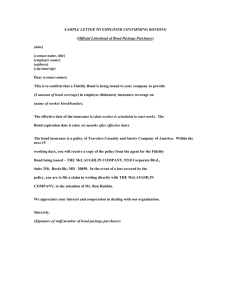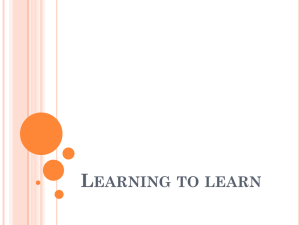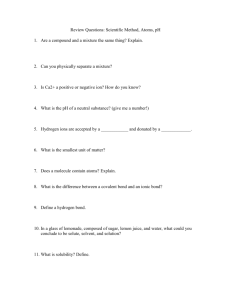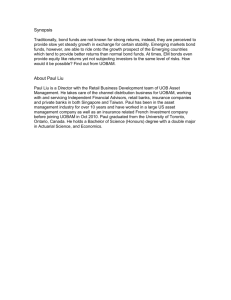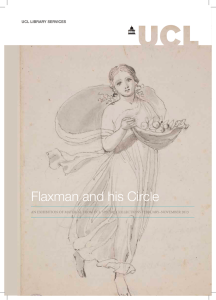An experiential introduction to ACT in career decision making
advertisement
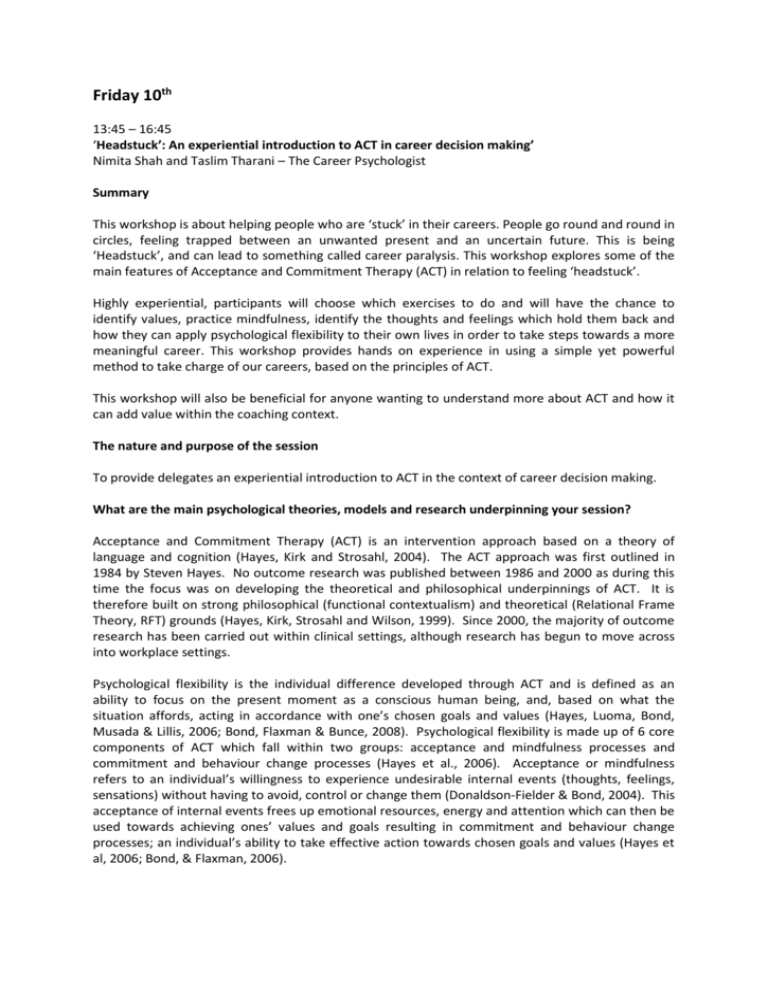
Friday 10th 13:45 – 16:45 ‘Headstuck’: An experiential introduction to ACT in career decision making’ Nimita Shah and Taslim Tharani – The Career Psychologist Summary This workshop is about helping people who are ‘stuck’ in their careers. People go round and round in circles, feeling trapped between an unwanted present and an uncertain future. This is being ‘Headstuck’, and can lead to something called career paralysis. This workshop explores some of the main features of Acceptance and Commitment Therapy (ACT) in relation to feeling ‘headstuck’. Highly experiential, participants will choose which exercises to do and will have the chance to identify values, practice mindfulness, identify the thoughts and feelings which hold them back and how they can apply psychological flexibility to their own lives in order to take steps towards a more meaningful career. This workshop provides hands on experience in using a simple yet powerful method to take charge of our careers, based on the principles of ACT. This workshop will also be beneficial for anyone wanting to understand more about ACT and how it can add value within the coaching context. The nature and purpose of the session To provide delegates an experiential introduction to ACT in the context of career decision making. What are the main psychological theories, models and research underpinning your session? Acceptance and Commitment Therapy (ACT) is an intervention approach based on a theory of language and cognition (Hayes, Kirk and Strosahl, 2004). The ACT approach was first outlined in 1984 by Steven Hayes. No outcome research was published between 1986 and 2000 as during this time the focus was on developing the theoretical and philosophical underpinnings of ACT. It is therefore built on strong philosophical (functional contextualism) and theoretical (Relational Frame Theory, RFT) grounds (Hayes, Kirk, Strosahl and Wilson, 1999). Since 2000, the majority of outcome research has been carried out within clinical settings, although research has begun to move across into workplace settings. Psychological flexibility is the individual difference developed through ACT and is defined as an ability to focus on the present moment as a conscious human being, and, based on what the situation affords, acting in accordance with one’s chosen goals and values (Hayes, Luoma, Bond, Musada & Lillis, 2006; Bond, Flaxman & Bunce, 2008). Psychological flexibility is made up of 6 core components of ACT which fall within two groups: acceptance and mindfulness processes and commitment and behaviour change processes (Hayes et al., 2006). Acceptance or mindfulness refers to an individual’s willingness to experience undesirable internal events (thoughts, feelings, sensations) without having to avoid, control or change them (Donaldson-Fielder & Bond, 2004). This acceptance of internal events frees up emotional resources, energy and attention which can then be used towards achieving ones’ values and goals resulting in commitment and behaviour change processes; an individual’s ability to take effective action towards chosen goals and values (Hayes et al, 2006; Bond, & Flaxman, 2006). Outcome research since 2000, has provided preliminary evidence to suggest that psychological flexibility is an important antecedent of employee health (mental well being, job control) and performance (innovation, learning) (Bond and Bunce, 2000; Bond and Bunce, 2003; Donaldson & Bond, 2004; Bond and Flaxman, 2006; Bond, Flaxman and Bunce, 2008). There is also preliminary evidence to suggest that psychological flexibility may enhance the effect of transformational leadership training (Bond, 2012 cited in Flaxman, Bond and Livheim, 2013). In addition, ACT has been used within career coaching, helping individuals to get ‘unstuck’ and take action towards a more meaningful career and even life, based on their values (Flaxman, Bond and Livheim, 2013). How do you see your proposal linking with the main conference theme of investing in the future, and what makes it apt for the particular strand you have chosen? Investing in ourselves, learning how to relate more flexibly to our thoughts and feelings, enables individuals to make more effective career decisions, and wider life decisions which are based on their values. Often our fears prevent us from moving forward, and taking action towards the careers and life that we truly want. Developing psychological flexibility, is one way that individuals can invest in themselves, and therefore in their future careers and life. It enables individuals to ‘feel the fear, and do it anyway’ What do you consider to be the most novel or innovative aspects of the ideas being presented? The fact that it is an experiential workshop, the best way to learn is to really experience it yourself. ACT in itself is new and emerging third wave therapy, it is only in the last decade that research is being published and coming to the forefront of academia. Functional contextualism and relational frame theory provide a new way of understanding language and how we are constrained by it. In addition, ACT is a mindfulness based approach, which again is a new and innovative approach to well-being and performance in the workplace. Which aspects of your session do you think conference delegates and potentially the wider public will find most informative and stimulating about your session? The ‘Headstuck’ material will be extremely informative and stimulating. Based on evolutionary psychology, cognitive psychology and neuroscience, this material will demonstrate how we get trapped by the way our minds have evolved, which leads us to feeling ‘stuck’ between a rock and a hard place. This new approach to working with difficult thoughts and emotions that may stop us from living our values and taking action to further our careers is exciting, new and refreshing. What are the learning objectives and outcomes for attendees? 1) To gain an overall understanding of the ACT model. 2) To experience mindfulness exercises that individuals can use themselves and potentially with clients 3) To identify values relating to an individual’s careers, and commit to at least one action they can take to live these values within the following week. 4) To provide take away exercises that can be incorporated into participants everyday lives, in order to support effective career decision making, as well as to enable delegates to live a more meaningful and richer life. What specific content is to be taught in the workshop? • An overall understanding of the ACT model • Mindfulness based exercises, tools and techniques, together with values identification exercises and ‘committed action’ (taking action towards goals) exercises • An overview of how the ACT model can facilitate career decision making • An understanding of how six cognitive biases combine to keep people ‘headstuck’ and how the ACT model can accommodate the mind’s biases so that individuals can become more flexible, and make more effective career decisions. • Links to further reading and resources will be provided References Bond, F.W., Hayes, S.C., & Barnes-Homes, D. (2006). Psychological flexibility, ACT, and organizational behaviour. Journal of Organizational Behavior Management, 26, 25-54. Bond, F.W., Hayes, S.C., & Barnes-Homes, D. (2006). Psychological flexibility, ACT, and organizational behaviour. Journal of Organizational Behavior Management, 26, 25-54. Bond, F.W. & Bunce, D. (2000). Outcomes and mediators of change in emotion-focused and problem-focused worksite stress management interventions. Journal of Occupational Health Psychology ,5(1), 156 – 163. Bond, F.W. & Bunce, D. (2001). Job control mediates change in a work reorganization intervention for stress reduction. Journal of Occupational Health Psychology, 6, 290 – 302. Bond, F. W. & Bunce, D. (2003). The role of acceptance and job control in mental health, job satisfaction, and work performance. Journal of Applied Psychology, 88 (6), 1057-1067. Bond, F.W. & Flaxman, P, E.,(in press). Learning is a mediator by which job control and psychological acceptance affect job performance and mental health. A reanalysis of Bond, F. W., & Flaxman, P. E. (2006). The ability of psychological flexibility and job control to predict learning, job performance, and mental health. Journal of Organizational Behavior Management, 26, 113-130. Bond, F.W., Flaxman, P.E., & Bunce, D. (2008). The influence of psychological flexibility on work redesign: Mediated moderation of a work reorganization intervention. Journal of Applied Psychology, 93 (3), 645-654. Donaldson-Feilder, E. J., & Bond, F. W. (2004). The relative importance of psychological acceptance and emotional intelligence to workplace well-being. British Journal of Guidance and Counselling, 33(3), 187-203. Flaxman, P. E., Bond, F. W., & Livheim, F. (May - 2013). The mindful and effective employee: An acceptance and commitment therapy training manual for improving well-being and performance. Oakland, CA: New Harbinger. Hayes, S. C., Luoma, J., Bond, F., Masuda, A., & Lillis, J. (2006). Acceptance and Commitment Therapy: Model, processes, and outcomes. Behaviour Research and Therapy, 44(1), 1-25.



